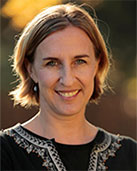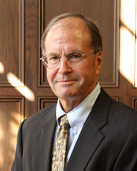
Elizabeth Shakman Hurd
Professor of Political Science and Professor & Chair of Religious Studies
Four experts available to comment on the U.S. Supreme Court’s anticipated move
EVANSTON, Ill. — According to a leaked draft opinion obtained by Politico, the U.S. Supreme Court is poised to overturn Roe v. Wade. Northwestern University has four political and legal experts available to discuss the historical and legal context of the potential decision and what it would mean for the future of abortion rights and the Court’s interpretation of the protections guaranteed by the Fourteenth Amendment.
Elizabeth Shakman Hurd is a professor of political science and religious studies at Northwestern, where she co-directs the Global Religion & Politics Research Group and co-curates the Teaching Law & Religion Case Study Archive. She can be reached by contacting Mohamed Abdelfattah at mohamed@northwestern.edu.
Quote from Professor Hurd:
“Fear of women’s autonomy and attempts to control their bodies have a long history, both secular and religious, in the U.S. and all over the world. The question of abortion rights that is being decided right now is about women’s control over their bodies, and not religion per se. There are religious Americans on all sides of this issue. The concern — some would say obsession — with sex, gender, sexuality and women’s bodies has become deeply politicized. The idea that it is a ‘religious’ issue is relatively new. Some trace it to the rise of the religious right in the 1970s and ’80s. But concern and fear about women’s autonomy and its societal and even biological consequences can be traced back much further in American history, as Marie Griffiths shows in her book “Moral Combat: How Sex Divided American Christians and Fractured American Politics”. Griffiths tracks these concerns to the rise of the anti-suffrage moment in the late 19th and early 20th centuries. The bottom line is that these are both secular and religious questions. The idea that it is either/or is a distraction.”
Joanna Grisinger is an associate professor of instruction and director of legal studies at Weinberg College of Arts and Sciences at Northwestern, where she teaches undergraduate courses including “Law & Society;” “Legal and Constitutional History of the United States;” “Constitutional Law;” and “Gender, Sexuality, and the Law.” Her research focuses on the modern administrative state in 20th-century U.S. legal and political history. She can be reached directly at joanna.grisinger@northwestern.edu.
Quote from Professor Grisinger:
“Overturning Roe would mean abortion regulation would revert to the states, leading to a patchwork of protections and forcing many pregnant people to travel across states lines to access abortion services. It also would open up many previously resolved questions about which fundamental rights are truly protected under the Fourteenth Amendment, including contraception, marriage and intimate association.”
Specializing in judicial behavior and strategy in public law, Tonja Jacobi is the co-founder of ScotusOA, a website dedicated to empirical analysis of Supreme Court oral arguments, is a professor of law at Northwestern Pritzker School of Law. Her areas of interest include judicial politics, Supreme Court oral arguments, criminal procedure and constitutional law. She can be reached directly at t-jacobi@law.northwestern.edu.
Quote from Professor Jacobi:
"It is common for the boundaries of constitutional rights to expand and contract with changes of Supreme Court personnel, but never before has the Court abolished a recognized constitutional right, as the leaked draft opinion in Dobbs v. Jackson reveals that the conservative majority is about to do."
An internationally recognized expert on constitutional law, Ronald J. Allen is the John Henry Wigmore Professor of Law at the Northwestern Pritzker School of Law. He previously has served as a commissioner of the Illinois Supreme Court and currently is on the board of the Constitutional Rights Foundation-Chicago. He can be reached directly at rjallen@law.northwestern.edu.

Professor of Political Science and Professor & Chair of Religious Studies

